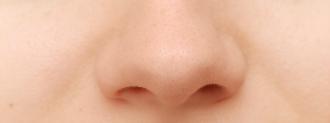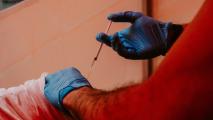Researchers have identified the cells in the nose that are most susceptible to infection by SARS-CoV-2, the virus that causes COVID-19. It turns out, they’re important for smelling.
Anosmia, having no sense of smell, is one of the most widely named and unique COVID-19 symptoms — even predicting the disease earlier than other common symptoms, like cough, fever, or trouble breathing.
People infected with the novel coronavirus don’t lose their ability to smell because of a flu-like stuffy nose — the trouble affects even those with clear nasal passages. Why exactly so many do lose their sense of smell has been unclear — until now.
Oddly, the neurons that detect smells and communicate them to the brain are not the virus’s targets — structural nose tissues are. This invasion kicks off a domino chain-reaction, as cells self-destruct to stop the virus.
“Our findings indicate that the novel coronavirus changes the sense of smell in patients not by directly infecting neurons but by affecting the function of supporting cells,” said Sandeep Robert Datta, a neurobiologist at Harvard Medical School.
The novel coronavirus is thought to enter human cells through a protein common on the surface of heart, lung, and nasal cells. That protein is an enzyme called angiotensin-converting enzyme II, or ACE-2, which helps to regulate blood pressure.
Unfortunately, ACE-2 also fits like a puzzle with the spike protein on the novel coronavirus.
Reporting in Science Advances, a team of researchers led by Harvard Medical School neuroscientists looked at tissue cells inside the nose, counting up the ACE-2 protein. They found that the ACE-2 protein was 200-700 times more abundant in tissues in the back of the nose, which are associated with smell, than in other areas.
“These olfactory supporting cells are necessary to protect and maintain the delicate neurons in the nose that detect odors and signal that information to the brain,” neurologist Andrew Lane told Science Focus.
“Generally speaking, when cells are infected with a virus, they undergo a process called pyroptosis — essentially hitting the self-destruct button to foil the virus. So, most likely, olfactory supporting cells destroy themselves, leading in turn to the death of sensory neurons and loss of the sense of smell.”
The sense of smell returns after some time for most COVID-19 patients, but a few are left with parosmia, an abnormal sense of smell. Lane says this warrants further study before researchers can say if this is a permanent condition.
This newly found connection between nose tissue cells and COVID-19 could lead to new treatment options directly via the nose.
We’d love to hear from you! If you have a comment about this article or if you have a tip for a future Freethink story, please email us at [email protected].






